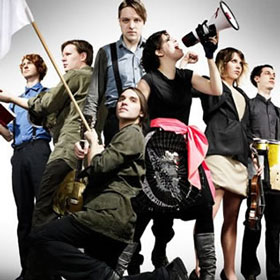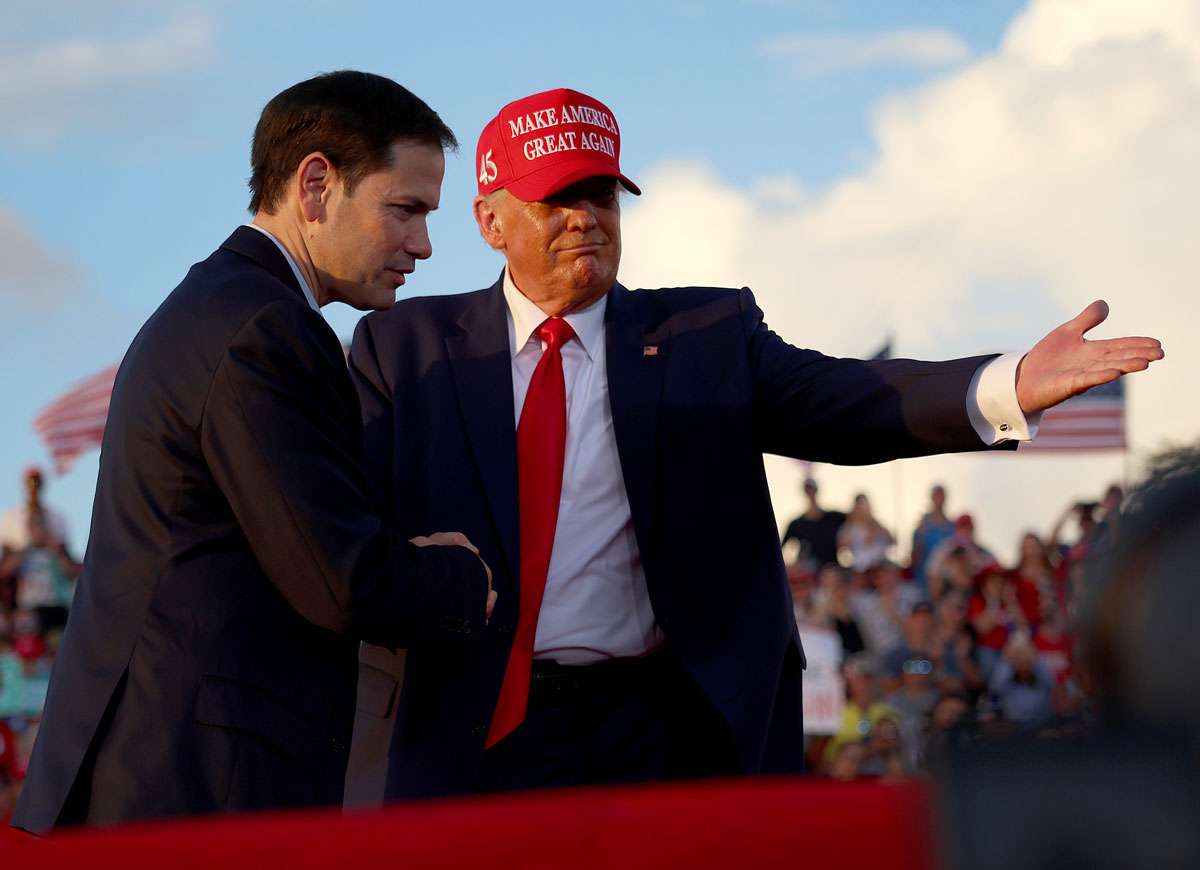Shades of Bergman In Spike Jonze's 'Scenes From The Suburbs'
No film or soundtrack along manifests a desire to hold onto perfect memories and a longing for the past as accurately as Spike Jonze’s dark and powerful short Scenes from the Suburbs. The film, based on the epic album of the same title by indie superstars Arcade Fire and co-written by Jonze and bandmates/brothers Win and Will Butler, takes place at the center of a civil war that is confined to a suburban sprawl in an unnamed location.
The town is on military lockdown; merely looking at a trooper the wrong way gets you shot and killed. Army tanks are omnipresent figures throughout the streets, and have become inhabitants of the town itself. It is unclear over what the town is fighting; but as the film so beautifully illustrates, the war itself doesn’t matter as much as the internal war that quietly wages within the group of friends at the film’s center.
At the film’s start, Kyle (Sam Dillon) and Winter (Paul Pluymen), along with their other friends, ride their bikes through desolate suburban streets, shoot BB guns at unsuspecting passersby, and skateboard along the highway. This montage is brilliantly accompanied by the song “The Suburbs,” an upbeat, piano-driven elegy for lost time, in which Arcade Fire’s frontman, Win Butler, quivers as if he’s about to break down in tears (“Sometimes I can’t believe it/I’m movin’ past the feeling.”) This song, the narrator’s effort to hold on to precious memories of youth, in combination with the film’s opening sequence makes the film’s shattering conclusion of violence and loss even more upsetting.
In a village that is infiltrated with menacing tanks and army troopers, the kids are alone (parents and other adults, except for one, are not seen), but very much together and are all each other have. Kyle and Winter and their friends waste countless hours riding through the streets, arm-wrestling on corners, and hanging out in their rooms talking about girls. The boys stop spending time together almost instantly when Winter’s brother comes home from what we can only assume is war.
Winter becomes more and more distant from his friends. Kyle continues to go about his merry childlike way, but Winter has a clear antagonistic attitude, especially towards Kyle. In a scene in which the two boys are held against a chained fence by police officers for no apparent reason, the boys’ friendship crumbles with a single glance from Winter towards Kyle.
In a later scene, Winter arrives at a house party with a stern expression and a short haircut, the opposite of his previous childlike, shaggy ‘do. Kyle looks to his friend with an expression of simultaneous confusion and grief; Winter looks back with fiery hatred in his eyes. It is not until the film’s disturbing climactic scene that we understand that Winter is merely reluctant to grow up and loathes his best friend for willingly remaining a child.
“When I think back about that summer, I don’t think much about the army.” These first words of the film, said with melancholy by the film’s narrator, Win Butler, permeate the tone and linger for the remainder. Eerily reminiscent of Ingmar Bergman’s The Silence, many aspects of the film are ambiguous, especially that of the presence of the army. But Jonze’s elegant execution of fragments of a friendship over the course of the summer makes the military’s presence extraneous. Here, we only focus on the sudden dissolution of Kyle and Winter’s relationship.
With its setting in the middle of a suburban war, the film’s premise easily could have seemed absurd. However, Jonze, known for his most recent venture into childhood territory with 2009’s Where the Wild Things Are, directs his actors so intimately that it’s as if they are not actors at all, but just kids being kids with a camera in the room. The natural acting from the film’s leads makes the film very real despite the unending chaos.
As far as the soundtrack goes, the use of music in Scenes from the Suburbs is perhaps the best in recent memory. In one scene, the lyrics “All those wasted hours we used to know/Spent the summer staring out the window” from the song “Wasted Hours” accompany a pivotal scene in which the characters are cruising around the suburban neighborhood in a run-down car as a crucial change in their previously innocent lives becomes imminent.
In another scene, the album’s pounding rock track “Month of May” plays over a violent beating. Even the beautifully composed instrumental versions of songs like “Rococo” and album closer “The Suburbs (Continued)” have emotionally profound effects on the scenes in which they are used. Moreover, the juxtaposition of the opening scene’s use of “The Suburbs” and the ending’s use of the devastating “Sprawl I (Flatland)” is so poignant and gorgeous that it can potentially drive viewers to tears.
As a massive fan of Arcade Fire, I can say without question that Jonze’s work is a perfect marriage between the film’s story and the album’s heavy concept of love, loss, and a reluctance to mature. I have listened to The Suburbs numerous times, and after watching this film, and in combination with the touching images of the kids, Butler’s narration, and especially the use of music, I realize that the album and film were made for each other.
I strongly recommend watching Scenes from the Suburbs, available online and in the new Deluxe Edition of The Suburbs (out August 2), but before you do so, do yourself a favor by listening to the beautiful album. Having a clear understanding of the album’s concept will make the film even more stunning, if it’s even possible.
1 Comments
Leave a comment
RELATED ARTICLES
Get the most-revealing celebrity conversations with the uInterview podcast!






I've been dying to watch this film since I first heard about it. Spike Jonze is amazing at directing films that involve reconciling with adulthood and that attitude goes hand in hand with Arcade Fire's music.